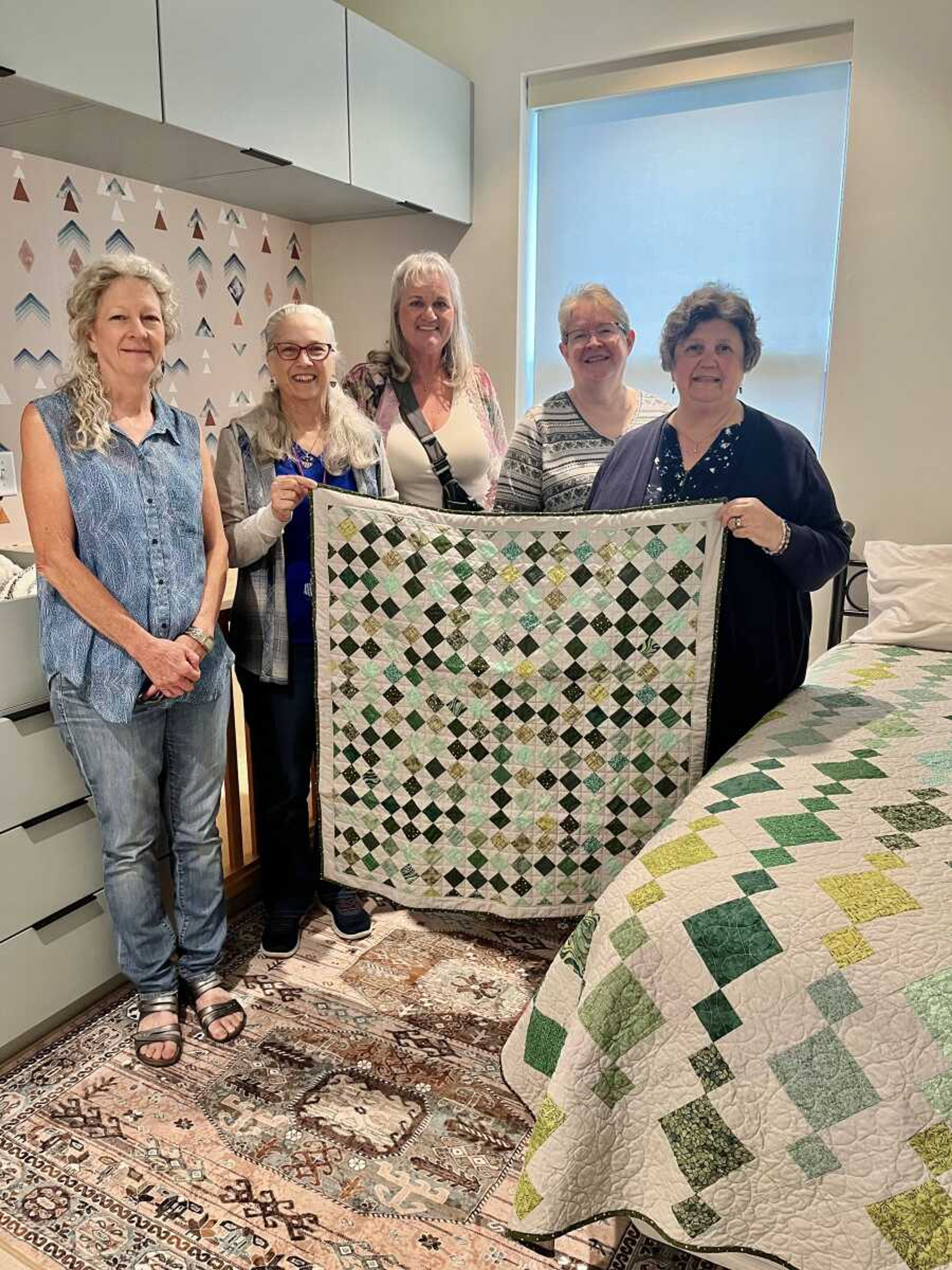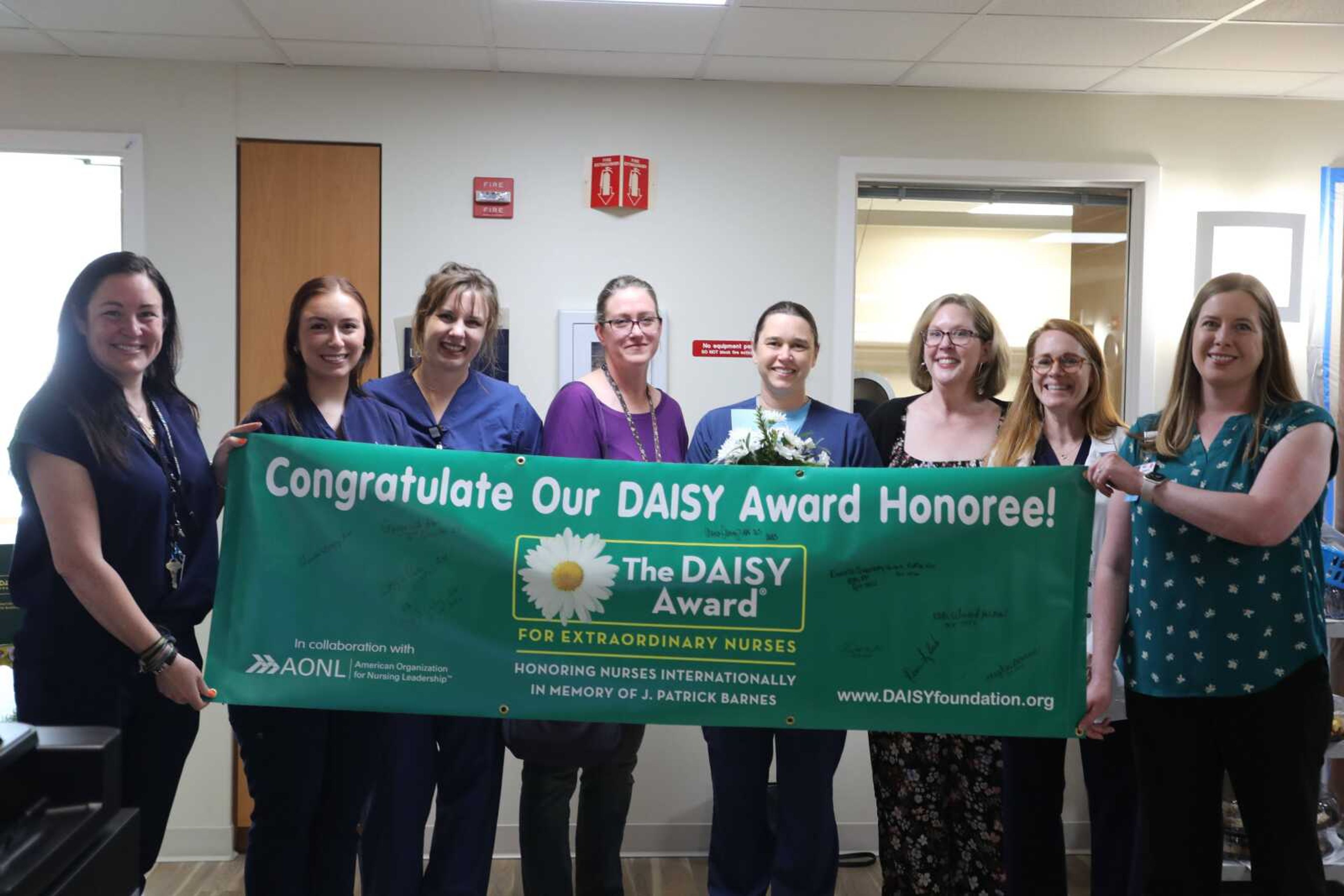Teachers take Conservation Summer School
CAPE GIRARDEAU, Mo. -- Just because water is clear, doesn't mean it's clean. That was the main lesson 17 Missouri teachers took away from the Perry County Soil and Water Conservation District (PCSWCD) and Missouri Department of Conservation (MDC) educator workshop July 14-16 at the MDC's Southeast Regional Office in Cape Girardeau...
CAPE GIRARDEAU, Mo. -- Just because water is clear, doesn't mean it's clean. That was the main lesson 17 Missouri teachers took away from the Perry County Soil and Water Conservation District (PCSWCD) and Missouri Department of Conservation (MDC) educator workshop July 14-16 at the MDC's Southeast Regional Office in Cape Girardeau.
The three day workshop enabled teachers to gain firsthand experience in water and karst management practices. Their experiences learning about water quality will be vital lessons in the classroom, according to workshop coordinator, LaVern Taylor.
"Our hope is that these teachers are now equipped to share with their students the importance of keeping our water clean," said Taylor. Taylor is also the Perry County Karst Project Coordinator for the PCSWCD and MDC.
Perry County has the most extensive karst system in Missouri, all on privately owned land. Known as "The Cave State", Missouri has over 6,000 caves.
Participants in the workshop took part in two days of classroom learning about karst systems, animal species that live there, and effective ways to communicate what they learned back in their own classrooms. To take the classroom learning further, the teachers were led by MDC fisheries biologist Brad Pobst and other MDC employees on a field day where they learned to evaluate and compare water qualities in an above ground stream and also a cave stream.
Fourth grade teacher Vicki LeGrand of Kelly Elementary School in Scott County said she's attended several MDC educator workshops.
"I love these classes," LeGrand said. "They're so practical and we're learning how to explore things that are right here -- practically in our own backyard."
One of LeGrand's favorite parts of the field day, she said, was taking inventory of animal species in the two habitats the teachers visited.
"I was surprised at how many crayfish there were in the stream and especially at the variety of species we found in such a small area," LeGrand said.
Taking inventory of animal species present in a water system is just one way scientists measure the health of the habitat. According to Taylor, they take a "canary in a mineshaft" approach.
"We counted the various species we found -- crayfish, frogs, fish and bugs -- and talked about which ones are more or less sensitive to pollutants," Taylor said. She said a sure sign of good quality water is whether there are certain more sensitive species present in the habitat.
Taylor said she hopes the teachers will now have a heightened awareness of the importance of water quality in karst systems, but also in general.
"Surface and ground waters are directly connected by caves in karst systems, which means there is little to no filter," she said.
According to Taylor, this causes a high potential for water contamination. By educating teachers Taylor said she feels confident the lesson will reach today's children -- the best candidates to ensure future improvement to Missouri waters.
"Children are still learning, so they're more ready to believe that clear water doesn't guarantee clean water," Taylor said. "We're hoping once teachers impart what they've learned on their students, the students will rectify the mistakes of previous generations as they grow older."
For information on future educator workshops with the Missouri Department of Conservation, contact education consultant Bridget Jackson at 573-290-5218 or go online to www.missouriconservation.org.
Connect with the Southeast Missourian Newsroom:
For corrections to this story or other insights for the editor, click here. To submit a letter to the editor, click here. To learn about the Southeast Missourian’s AI Policy, click here.










